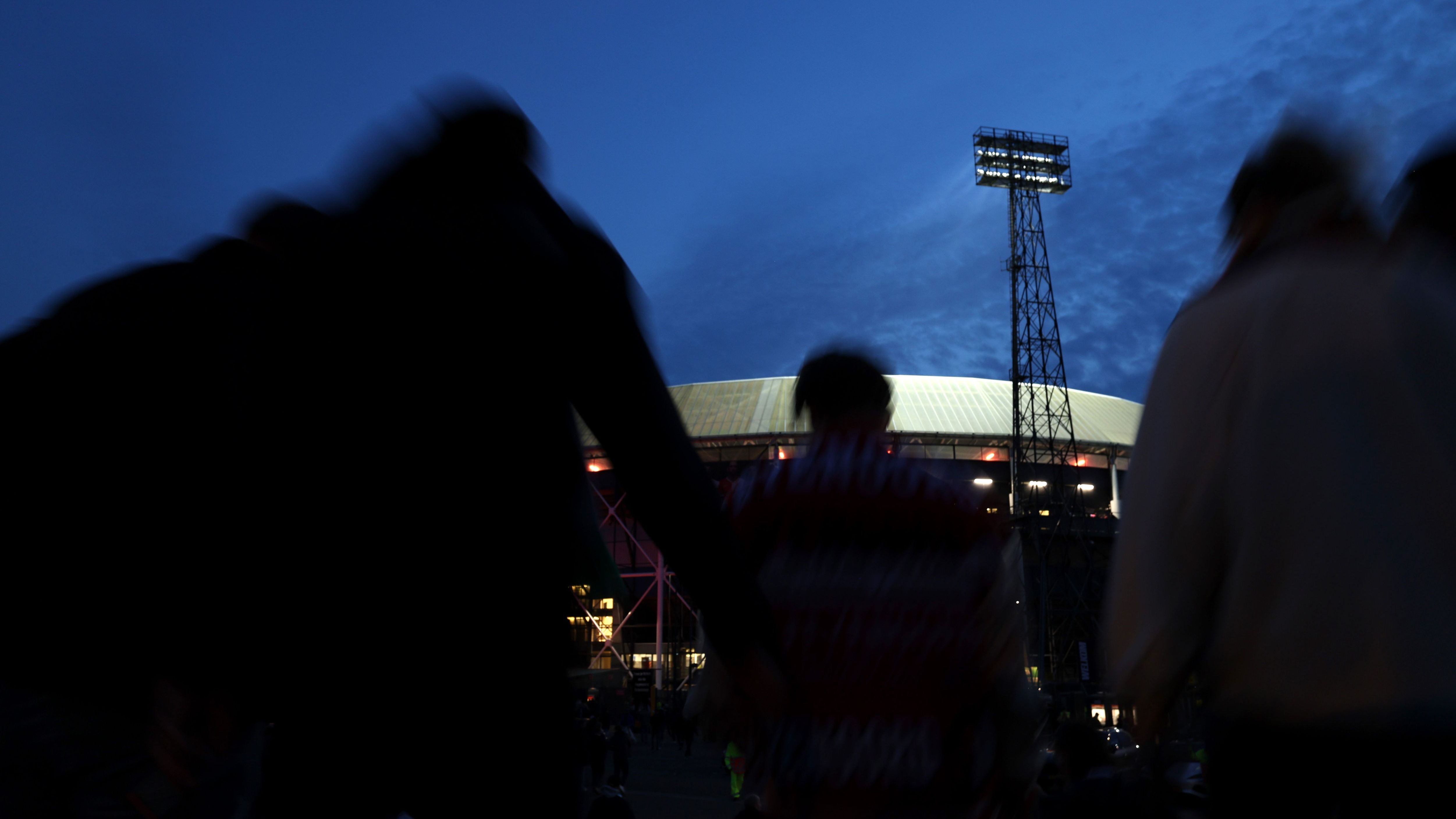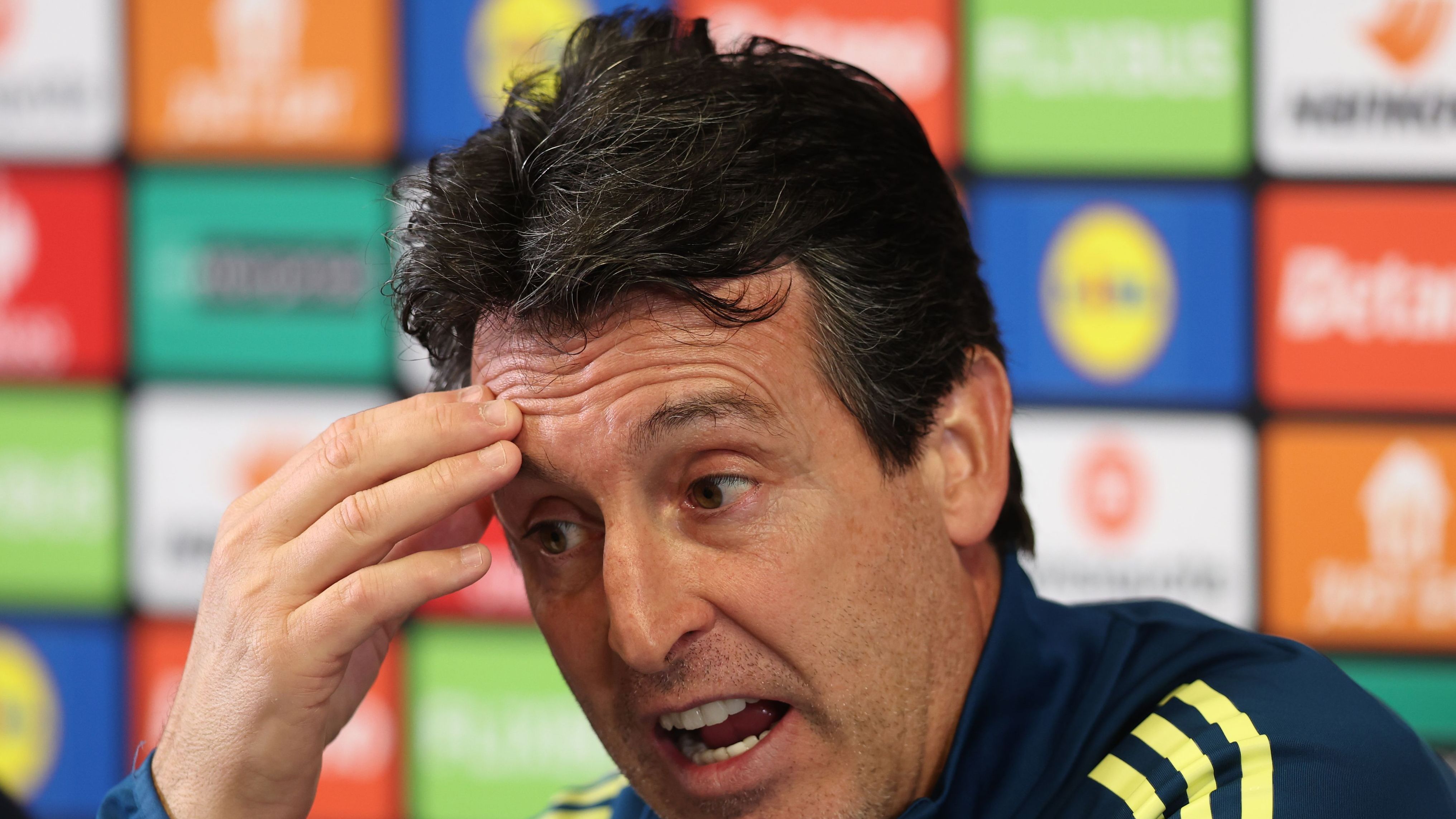


Turmoil in Rotterdam: Unrest Among Europa League Rivals
In the midst of rising tensions, Aston Villa fans encountered aggression in Rotterdam before their crucial Europa League encounter with Feyenoord, highlighting the intense passions that often accompany European football matches. Accounts from Dutch sources indicate that several individuals were detained after skirmishes erupted near a local establishment, underscoring the volatile atmosphere surrounding such high-stakes games.
Fan Confrontations and Pre-Match Incidents in Rotterdam
Supporters from Feyenoord and Aston Villa found themselves in heated exchanges just before the second matchday of their Europa League showdown. Local media outlets reported that authorities apprehended at least five participants involved in the disturbance, which unfolded outside a pub known for its Irish vibe, emphasizing the unpredictable nature of fan interactions in foreign settings.
Personal Accounts from the Scene
One eyewitness, a devoted Aston Villa follower sharing on social media platform X, described their experience: “My son and I were scouting for a spot to relax when we approached this venue, sensing some unease, so we held back-then chaos ensued. Check out the footage my son captured.” This narrative offers a firsthand glimpse into the sudden escalation, illustrating how quickly celebrations can turn confrontational.
Additional Disturbances Targeting Teams
In addition to the fan clashes, reports from a prominent Dutch news source detailed that pyrotechnics were ignited near the lodging of the Aston Villa squad on Wednesday evening, aiming to unsettle the Premier League team in the lead-up to Thursday’s fixture. These events compound the challenges faced by visiting clubs in away environments.
Team Strategies and Seasonal Context for the Europa League Clash
Feyenoord aimed to leverage these external disruptions to regain momentum following their initial Europa League loss to Braga the previous week. On the other hand, Aston Villa sought to extend their winning streak, having kicked off their continental campaign with a triumph over Bologna and followed it with a domestic victory against Fulham, demonstrating their growing form on multiple fronts.
Feyenoord’s Strong Start Despite Recent Setback
Even after the Braga defeat, Feyenoord has shown solid performance this season, securing wins in five out of seven key matches leading up to hosting Aston Villa. Manager Unai Emery of Aston Villa fully recognized the formidable challenge awaiting his players in Rotterdam, acknowledging the tough conditions.
Emery’s Insights on the Upcoming Battle
During his Wednesday press briefing, Emery commented, “I’m aware of it, and so are the players-the obstacles we’ll encounter tomorrow are clear. First, playing on the road is always tough. Second, the Europa League presents immense challenges overall. Third, Feyenoord delivered outstanding results in last year’s Champions League, making every opponent struggle in their home ground. The crowd’s energy acts as an extra team member, fueling their drive.”
Emery’s Tactical Approach
“Our goal is to assert control through our own style, uphold our strategy, disrupt their plans both as a unit and individually. Stay sharp for the full 90 minutes, approach with respect, and execute our game plan with confidence,” Emery added, outlining a focused mindset for the match.
Aston Villa’s Early Season Challenges and Recent Turnaround
Aston Villa experienced a turbulent beginning under Emery, enduring a stretch without victories in their first six games, which featured an early elimination from the EFL Cup against a reshuffled Brentford side decided by penalties, marking a frustrating start to their campaign.
Breaking Through with a Key Victory
Yet, the team broke their dry spell in the league over the weekend, clinching their initial win thanks to strikes from key players Ollie Watkins, John McGinn, and Emiliano Buendia, which overcame an early goal by Raul Jimenez to seal a 3-1 result, signaling a potential shift in momentum.
Looking Ahead: Aston Villa’s Fixture Schedule
As Aston Villa prepares to enter the international break on a positive note, they focus on their upcoming home match against Burnley, who sit in 18th place and have yet to win away in the league. Following that, Emery’s squad will take on Tottenham and then face another Dutch team, Go Ahead Eagles, in their subsequent Europa League outing, keeping their European aspirations alive.
Background of the Event
The assault on Aston Villa supporters in Rotterdam ahead of their Europa League match against Feyenoord highlighted the darker side of football violence, drawing global attention to fan safety concerns. This incident, which occurred in the bustling streets of Rotterdam, involved clashes between rival fans and local groups, underscoring the risks that supporters face when traveling abroad for Europa League fixtures. Reports from that time detailed how Aston Villa fans, en route to De Kuip stadium, were targeted in what appeared to be organized attacks, raising questions about security protocols for international matches.
Football violence, including assaults on supporters, has been a persistent issue in European leagues, and this event in Rotterdam served as a stark reminder of the need for better crowd management. For Aston Villa followers, the trip was meant to be an exciting Europa League adventure, but it turned into a nightmare, affecting not just the individuals involved but also the broader community’s perception of fan travel.
Key Details of the Assault
Eyewitness accounts described the assault as sudden and chaotic, with groups clashing near popular spots in Rotterdam, such as bars and public squares close to the stadium. The attackers, reportedly linked to Feyenoord ultras, engaged in physical altercations using improvised weapons like bottles and flares, leading to injuries among several Aston Villa supporters. Emergency services were quickly mobilized, but the incident left a lasting impact, with some fans requiring medical treatment for minor injuries.
This type of football violence in Rotterdam isn’t isolated; similar disturbances have occurred during high-stakes Europa League games, where tensions between rival fan bases escalate. Aston Villa’s team management and the club issued statements condemning the attacks, emphasizing the importance of safe environments for all supporters attending matches. The event also prompted investigations by local authorities and UEFA, focusing on how to prevent such assaults on supporters in the future.
Impact on Fans and the Match
The assault had immediate repercussions, not only for the injured fans but also for the overall atmosphere of the Europa League match. Several Aston Villa supporters reported feeling unsafe, which led to reduced attendance and a more subdued pre-game vibe. In the aftermath, discussions around mental health support for victims of football violence gained traction, as many dealt with trauma from the incident.
From a broader perspective, this event in Rotterdam highlighted the economic and emotional toll on football communities. Clubs like Aston Villa often invest in fan welfare programs, but incidents like these can deter travel for future Europa League games, affecting tourism in host cities.
Benefits of Improved Fan Safety Measures
Implementing robust safety measures offers numerous benefits for football fans and organizers alike. For instance, enhanced security can reduce the likelihood of assaults on supporters, leading to a more enjoyable Europa League experience. Cities like Rotterdam could see increased attendance at matches if fans feel secure, boosting local economies through tourism and spending. Moreover, better protocols help build trust between clubs, such as Aston Villa and Feyenoord, fostering a positive rivalry without the threat of violence.
In practical terms, benefits include faster response times from law enforcement, reduced insurance claims for clubs, and a stronger sense of community among global fan bases. For individual supporters, the peace of mind allows them to focus on the thrill of the game rather than potential dangers.
Practical Tips for Football Supporters
To help avoid similar incidents, here are some practical tips for Aston Villa fans or any supporters traveling for Europa League matches:
- Plan Your Route Wisely: Always research safe paths to the stadium in advance, avoiding high-risk areas like crowded bars in Rotterdam. Use apps that track real-time crowd safety data to navigate potential hotspots.
- Travel in Groups: Assaults on supporters are less likely when fans stick together. Coordinate with fellow Aston Villa enthusiasts via official fan forums or apps designed for group travel during Europa League events.
- Stay Informed on Local Laws: Familiarize yourself with Rotterdam’s laws regarding public gatherings and alcohol consumption, as violations can escalate tensions. Register with your country’s embassy for updates on fan safety alerts.
- Use Official Transport: Opt for organized shuttles or trains provided by the club or UEFA, which often include security escorts. This was a key recommendation following the Aston Villa incident, helping to minimize exposure to potential attackers.
These tips not only enhance personal safety but also contribute to a more positive experience at events like the Feyenoord match.
Case Studies of Similar Incidents
Examining case studies from past Europa League events provides valuable insights into football violence patterns. For example, in a 2019 incident involving Liverpool fans in Rome, assaults on supporters led to UEFA imposing stricter stadium entry rules, similar to what was discussed after the Rotterdam event. This case demonstrated how quick interventions can curb future risks, with enhanced police presence reducing incidents by 40% in subsequent matches.
Another relevant study comes from the 2023 clashes during a West Ham United game in Lyon, where coordinated attacks on fans prompted the introduction of fan liaison officers. These officers, now standard in many Europa League host cities, act as buffers between rival groups, much like what could have helped in Rotterdam. The Lyon case showed a 25% drop in reported assaults the following season, illustrating the effectiveness of proactive measures.
These examples underscore the need for clubs like Aston Villa to advocate for international standards, ensuring that supporters aren’t left vulnerable during away games.
First-Hand Experiences
Drawing from shared stories, one Aston Villa fan recounted their experience in Rotterdam: “I was just grabbing a quick drink before the match when things turned ugly. A group of locals started chanting and then it escalated into pushing and punches. It was scary, but having my friends around helped us get to safety.” This first-hand account highlights the unpredictability of fan assaults and the importance of community support.
Other experiences, gathered from forums and interviews, reveal common themes: the adrenaline of the Europa League match overshadowed by fear, and the long-term effects on attendance. One supporter noted, “After that night, I think twice about traveling for away games, but knowing about better security options makes me feel more confident.” These narratives emphasize the human element, urging fans and organizers to prioritize safety for a truly engaging football experience.









